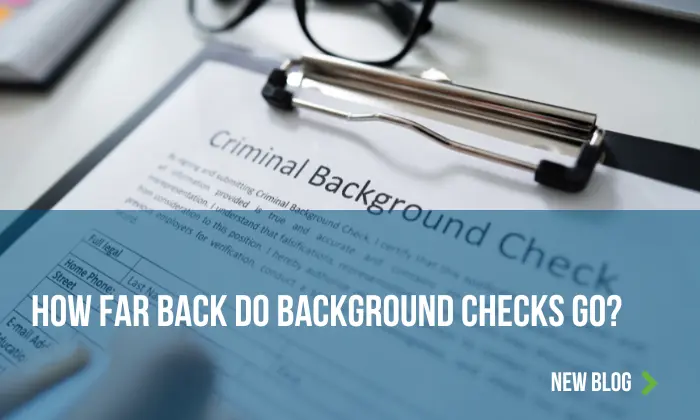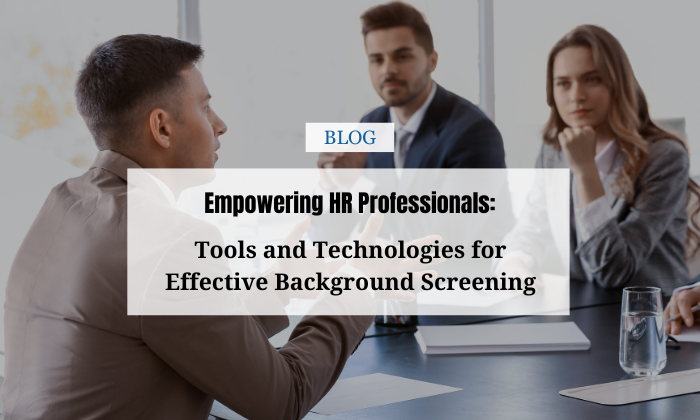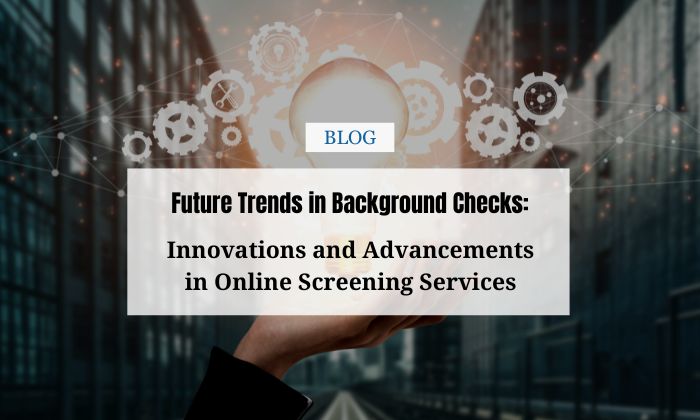In the realm of critical decision-making, whether it involves recruiting new employees, leasing properties, or establishing personal connections, background checks emerge as indispensable tools, wielding the power to furnish invaluable insights. These checks serve a fundamental purpose – to unveil the mosaic of an individual’s past, thereby enabling an informed evaluation of their integrity, dependability, and aptness for a specific role or circumstance.
As employers, landlords, and individuals endeavor to gain a holistic comprehension of a person’s history, they inevitably confront a pertinent inquiry: Just how far back do background checks reach? By delving into the depths of background checks, we embark on a journey to grasp the intricacies of their different types, understand the legal implications, and explore the timeframes that delineate the extent to which a person’s life may be laid bare. This knowledge proves instrumental in striking a harmonious balance between making informed decisions and respecting the privacy rights of those under scrutiny. With this profound understanding, we empower ourselves to navigate through life’s multifarious scenarios, armed with the wisdom to make responsible and judicious choices.
Understanding Background Checks
Background checks are a vital process employed by employers, landlords, organizations, and individuals to gain crucial insights into an individual’s history, character, and past activities. These checks serve as powerful tools for evaluating a person’s trustworthiness, credibility, and suitability for various roles and responsibilities. By conducting background checks, decision-makers seek to mitigate risks, ensure safety, and maintain the integrity of their operations.
Definition and Purpose:
Background checks involve the systematic examination of a person’s records, which can encompass various aspects of their life, including criminal history, employment background, credit history, educational qualifications, and more. The primary purpose of these checks is to verify the accuracy of information provided by an individual and to uncover any potential red flags that may affect their suitability for a particular position, tenancy, or relationship.
Types of Background Checks:
Background checks can differ based on their intended scope and purpose. Some common types include:
- Employment Background Checks: Conducted by employers to assess a candidate’s qualifications, work experience, and any potential legal or disciplinary issues that may impact their job performance.
- Criminal Background Checks: Designed to reveal any past criminal convictions or pending charges, helping to gauge the individual’s trustworthiness and potential risks.
- Tenant Background Checks: Utilized by landlords to evaluate a prospective tenant’s rental history, financial stability, and previous landlord-tenant relationships.
- Financial Background Checks: Typically performed by financial institutions or lenders to assess an individual’s creditworthiness and financial responsibility.
Conducting Background Checks:
Background checks are usually carried out through various methods, such as accessing public records, contacting references, verifying educational qualifications, and partnering with reputable background check providers. It’s essential to follow legal regulations and obtain appropriate consent from the individual before initiating the background check process.
Legal and Ethical Considerations:
Conducting background checks requires strict adherence to local, state, and federal laws, including compliance with the Fair Credit Reporting Act (FCRA) in certain cases. Moreover, it is crucial to maintain confidentiality and ensure that information gathered during the process is used solely for its intended purpose.
Balancing Privacy and Security:
While background checks provide valuable information, it is essential to strike a balance between obtaining relevant data and respecting an individual’s privacy rights. Decisions based on background checks should avoid unfair discrimination and be relevant to the specific requirements of the role or relationship.
Factors Affecting the Scope of Background Checks
The scope of background checks can vary significantly based on several factors, including legal regulations, industry-specific requirements, and the policies set forth by employers or organizations. These factors play a pivotal role in determining the extent to which a background check delves into an individual’s history and the specific information sought during the process. Understanding these factors is crucial for conducting background checks that are both thorough and compliant with applicable laws and standards.
- Legal Regulations and Compliance Requirements: Different jurisdictions have distinct laws governing background checks, and these laws can vary depending on the type of background check being conducted. For instance, employment background checks may be subject to the Fair Credit Reporting Act (FCRA) in the United States, which outlines specific requirements related to obtaining consent, providing disclosures, and handling adverse actions based on the background check results. Compliance with such legal regulations is essential to avoid potential legal liabilities.
- Industry-Specific Standards and Practices: Certain industries, such as healthcare, finance, or government sectors, may have stringent background check requirements due to the sensitive nature of their work and the potential risks associated with the positions they offer. Compliance with industry-specific standards ensures that the necessary screening is conducted to safeguard the interests of the organization and the public.
- Employer or Organization Policies: Employers and organizations often have their own policies and guidelines regarding background checks. These policies may specify the types of checks conducted, the specific information sought, and the timeframes for evaluating an individual’s history. Factors like the nature of the job, level of responsibility, and the organization’s risk tolerance can influence the depth and breadth of the background check.
- Relevance to the Position or Purpose: Scope of a background check is often tailored to the requirements of the position or the purpose for which it is conducted. For example, a position that involves handling sensitive financial information may necessitate a comprehensive financial background check, while a role that does not involve access to such data may not require the same level of scrutiny.
- Privacy and Data Protection: Protecting the privacy of individuals is a significant consideration in conducting background checks. The information gathered during the process should be relevant and used solely for its intended purpose. Access to sensitive personal information should be limited to authorized personnel only, and proper data security measures should be in place to prevent unauthorized access or data breaches.
- Time Constraints and Resources: The time available for conducting background checks and the resources allocated for the process can also impact the scope. In some cases, organizations may opt for faster, more basic checks due to time constraints or limited resources, while others may invest in more thorough investigations.
How Far Back Can Different Types of Background Checks Go?
The scope and duration of background checks can vary depending on the specific type of check being conducted and the relevant regulations or policies in place. Different types of background checks have different timeframes for examining an individual’s history. Let’s explore how far back each of these checks can typically go:
- Employment Background Checks: Employment background checks generally focus on an individual’s employment history, education, and relevant professional qualifications. The timeframe for employment history verification can vary, but it is common for employers to look back between 7 to 10 years. However, some industries and organizations may extend the timeframe for certain positions, particularly those involving higher levels of responsibility or public trust.
- Criminal Background Checks: Criminal background checks aim to uncover any past criminal convictions or pending charges. The timeframe for reporting criminal convictions is usually based on the applicable laws and the type of crime. In many jurisdictions, certain convictions can be reported indefinitely, while others may have limitations. Typically, criminal background checks can cover anywhere from 7 to 10 years of an individual’s criminal history.
- Tenant Background Checks: Tenant background checks are used by landlords to assess the rental history, financial stability, and suitability of prospective tenants. The timeframe for rental history verification can vary, but it often includes the previous 3 to 5 years of rental history, allowing landlords to assess an applicant’s payment history and their behavior as a tenant.
- Financial Background Checks: Financial background checks are conducted by financial institutions and lenders to evaluate an individual’s creditworthiness and financial responsibility. Credit history reporting periods are governed by credit reporting agencies and can range from 7 to 10 years, depending on the type of credit event, such as late payments, bankruptcies, or foreclosures.
- Education and Credential Verification: Background checks that verify an individual’s educational qualifications and professional credentials typically confirm degrees, certifications, and licenses obtained throughout their educational and professional career. There is no specific timeframe for education and credential verification, as these records are considered valid unless proven otherwise.
It’s essential to note that the specific timeframes mentioned above are general guidelines and can vary based on local laws, industry standards, and individual organizational policies. Moreover, certain jurisdictions may impose limitations on how far back certain information can be reported in compliance with data protection and privacy regulations.
Legal and Ethical Considerations
Background checks are powerful tools for obtaining crucial information about individuals, but their use must be guided by legal and ethical considerations to protect the rights and privacy of the subjects involved. Below are some key legal and ethical considerations that should be observed during the background check process:
- Compliance with Applicable Laws: Background checks must be conducted in strict compliance with all relevant local, state, and federal laws. Different jurisdictions may have specific regulations governing the use of background checks, such as the Fair Credit Reporting Act (FCRA) in the United States. Adherence to these laws helps prevent legal issues and ensures that individuals’ rights are safeguarded.
- Obtaining Proper Consent: Prior to initiating a background check, it is essential to obtain explicit and informed consent from the individual being screened. The consent should clearly specify the purpose of the background check, the types of information to be gathered, and the rights of the individual with regard to the process and its results.
- Use of Information: The information obtained through background checks should be used solely for the purpose for which it was gathered. Employers, landlords, or organizations should refrain from using background check data for discriminatory or inappropriate purposes.
- Privacy Protection: Protecting the privacy of individuals is paramount in background checks. Personal information should be handled with the utmost care and stored securely. Access to background check results should be limited to authorized personnel only.
- Non-Discrimination and Fair Hiring Practices: Background checks should not be used to discriminate against individuals based on protected characteristics such as race, gender, religion, or disability. Employers must ensure that background check criteria are relevant to the job requirements and do not unfairly exclude qualified candidates.
- Accurate Reporting: Background check providers and organizations conducting checks should ensure the accuracy of the information they report. If adverse actions are taken based on background check results, individuals should be given an opportunity to review and correct any inaccurate or misleading information.
- Transparency and Disclosure: Individuals subject to background checks should be informed about the process and their rights in a clear and transparent manner. Employers and organizations should provide candidates or applicants with information about the background check requirements and the potential impact of the results on their candidacy or eligibility.
- Confidentiality: Background check results should be treated as confidential information and shared only with individuals who have a legitimate need to know. Sharing sensitive information with unauthorized parties may lead to legal consequences.
Industries with Specific Background Check Requirements
Certain industries have specific background check requirements due to the nature of their work, the level of responsibility involved, and the need to ensure public safety and security. These industries recognize the importance of conducting thorough background checks to mitigate potential risks and maintain the integrity of their operations. Here are some industries with specific background check requirements:
- Healthcare and Medical Professions: The healthcare industry places a significant emphasis on patient safety and care. Healthcare employers often conduct extensive background checks for healthcare professionals, including doctors, nurses, pharmacists, and other staff. These checks typically include verification of licenses, certifications, and disciplinary actions, as well as criminal background checks to ensure the trustworthiness of those working in sensitive healthcare settings.
- Financial and Banking Sectors: Given the sensitive financial data handled by employees in the financial and banking sectors, these industries conduct comprehensive background checks. Financial institutions need to verify the integrity and financial history of potential employees to prevent fraudulent activities and protect customer interests.
- Government and Security-Sensitive Positions: Government agencies, law enforcement, and security companies require stringent background checks for employees who handle classified information or have access to sensitive facilities. These checks often include extensive criminal history checks, clearance verifications, and investigations into an individual’s loyalty and trustworthiness.
- Childcare and Education: Childcare facilities, schools, and educational institutions prioritize the safety of children and students. Background checks for teachers, school staff, and childcare providers are essential to identify any history of misconduct or criminal offenses that may pose a risk to children.
- Transportation and Aviation: The transportation industry, particularly aviation, has strict background check requirements for pilots, air traffic controllers, and airport personnel. These checks help ensure the safety and security of passengers and the general public.
- Government Contractors: Companies that contract with government agencies may be required to conduct background checks on their employees as part of the contract’s security requirements. These checks help protect sensitive government information and facilities.
- Law Firms and Legal Professionals: Law firms and legal organizations often conduct background checks on potential lawyers and legal staff to ensure they meet the ethical and professional standards of the legal profession.
- Nonprofit Organizations: Nonprofit organizations dealing with vulnerable populations, such as the elderly or individuals with disabilities, often conduct background checks on employees and volunteers to safeguard the well-being of the people they serve.
The Importance of a Fair and Comprehensive Approach
Background checks play a crucial role in various aspects of life, from employment and housing to personal relationships. However, the significance of conducting these checks with a fair and comprehensive approach cannot be overstated. Such an approach ensures that individuals are evaluated fairly, without bias or discrimination, and that decision-making is rooted in relevant and accurate information. There are several reasons why a fair and comprehensive approach is essential in background checks:
- Avoiding Discrimination: A fair approach in background checks prevents discrimination based on protected characteristics such as race, gender, religion, disability, or age. Decisions should be based on an individual’s qualifications, experience, and suitability for the role or position, rather than irrelevant personal factors.
- Providing Second Chances: A comprehensive approach considers an individual’s entire history, not just isolated incidents or past mistakes. It allows for a holistic evaluation of a person’s growth, rehabilitation, and accomplishments, offering them a fair chance to demonstrate their abilities and potential.
- Balancing Risk Mitigation and Fairness: A comprehensive background check balances the need for risk mitigation with the recognition of individual rights and privacy. It ensures that the information obtained is relevant to the specific role or circumstance and that any adverse actions are proportionate to the risks identified.
- Strengthening Trust and Transparency: Employing a fair and comprehensive approach in background checks fosters trust between employers, landlords, or organizations and the individuals being screened. Transparent communication about the process and its purpose establishes a foundation of respect and integrity.
- Reducing Turnover and Costs: A thorough evaluation of candidates or applicants helps identify the best fit for a role, reducing the likelihood of hiring or leasing decisions that may lead to turnover. Minimizing turnover saves time, resources, and costs associated with repeated recruitment or tenant searches.
- Ensuring Compliance with Laws and Regulations: A fair approach ensures that background checks comply with all relevant laws and regulations. Non-compliance can lead to legal issues and reputational damage for employers and organizations.
- Improving Safety and Security: Comprehensive background checks contribute to a safer and more secure environment by identifying potential risks, especially in industries dealing with vulnerable populations or sensitive information.
- Upholding Organizational Values: Organizations that prioritize fairness and comprehensive evaluations in their background check process align with their values of equality, diversity, and respect for individuals’ rights.
Conclusion
In conclusion, background checks are powerful tools that provide valuable insights into an individual’s history, guiding important decisions in various areas of life. Understanding the scope and limitations of different types of background checks empowers employers, landlords, and organizations to make informed and responsible choices while respecting individual privacy rights.
Adhering to legal regulations, ethical considerations, and maintaining a fair and comprehensive approach ensures that background checks are conducted responsibly and transparently. Striking a balance between risk mitigation and second chances, background checks contribute to safer environments, protect vulnerable populations, and uphold the principles of fairness and respect. By embracing these principles, we foster trust, integrity, and a more equitable society for all.
Securecheck360
At Securecheck360, we specialize in providing comprehensive Employment Background Screening Services to businesses of all sizes, both nationally and internationally. Our tailored solutions are designed to cater to the specific needs of Small, Mid-Size, and Large organizations, ensuring that they have the necessary tools and information to make informed hiring decisions.
To know more about our services, book your free demo today!







